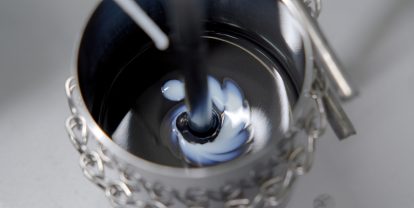Battery
BASF join forces with KIT on multilayered battery coatings research project
The duo has joined forces to investigate the formulation boundary conditions in multilayer battery coatings within a research project supported by public co-funding
-
By ICN Bureau | October 20, 2021
Experts from BASF and Karlsruhe Institute of Technology (KIT) jointly elaborate the limits in combining differing formulations in one coating step for high-performance lithium-ion batteries for electric vehicles.
To enhance the performance of lithium ion-batteries in terms of increased range and reduced charging time, BASF collaborates with its academic network to further develop its smart materials and production processes with reduced CO2 footprint.
BASF and Karlsruhe Institute of Technology (KIT) joined forces to investigate the formulation boundary conditions in multilayer battery coatings within a research project supported by public co-funding. This research project is part of the “Batterie 2020 Transfer” research cluster initiated by the German Federal Ministry of Education and Research. The goal of the joint project is to design a fully established formulation and coating model for multilayered battery coatings.
While BASF specialists provide their formulation experience as well as know-how in application tests for defining the range of potentially combinable functional layers, KIT experts will implement those into and expand existing coating stability models.
“This joint research project is a great opportunity to deepen our knowledge in formulation and processing of battery coatings and to elaborate technical fundamentals for future battery product design. At BASF, we strongly encourage collaboration with external research partners in this exciting battery materials research area,” said Prof. Frank Kleine Jäger, Vice President - Solids Formulation and Handling, BASF.
“By applying several functional layers at once, we can meet the demanding requirements of tomorrow’s lithium-ion batteries.” explained Prof. Wilhelm Schabel, who leads the participating group “Thin Film Technology” at KIT. “With BASF as a complementary partner in this project, we are confident about extending the theories of multilayer coating by this major step,” added Dr. Philip Scharfer, co-head of the KIT research group.
“This joint research project is a great example of our profound expertise in the field of battery binders. And we are not standing still here: Knowing that electrode performance is a huge topic for our customers, we establish strategic development partnerships with other dedicated experts to serve our customers’ needs,” said Prof. Thomas Schiele, Vice President Adhesives, Fiber Bonding and Paper Coating Chemicals at BASF SE.
